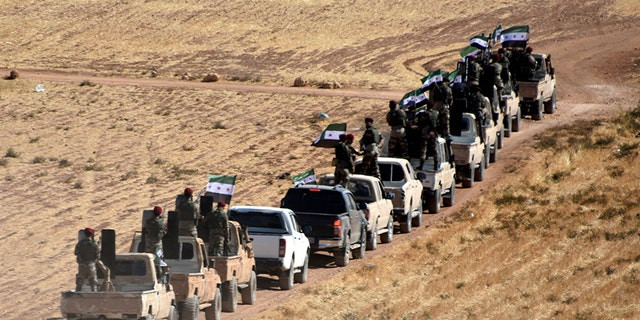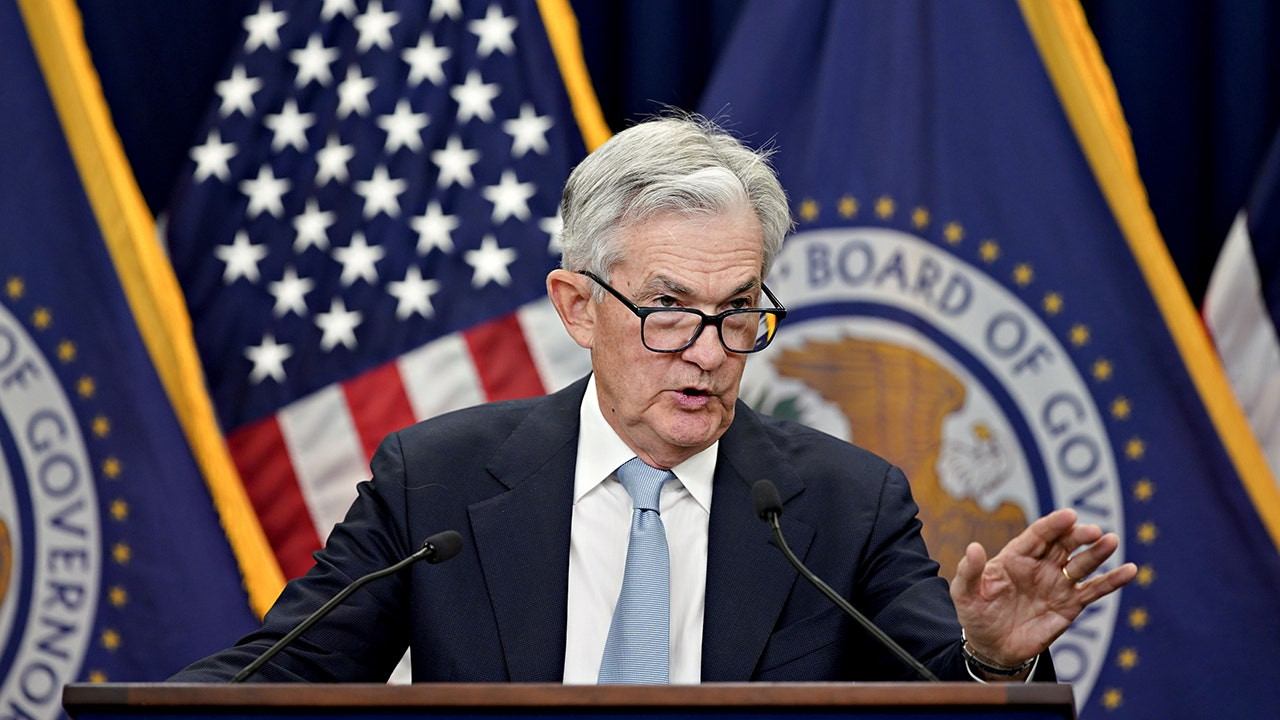The United Kingdom's decision to suspend some arms exports to Israel has angered Israeli officials, confounded the U.K.'s chief rabbi — and even disappointed many human rights groups that say it doesn't go far enough. It also marks a shift in British foreign policy, away from being lockstep with Washington when it comes to support for Israel. After months of public protests at weapons factories across the country against arming Israel, U.K. Foreign Secretary David Lammy told Parliament on Monday, lawmakers' first day back from summer recess, that the government is suspending about 30 of its 350 arms export licenses for Israel.
He said a legal review found that "for certain U.K. arms exports to Israel there exists a clear risk that they might be used to commit or facilitate a serious violation of international humanitarian law." Israel denies breaking any laws. As the anniversary of the Oct. 7 Hamas-led attack approaches, and the death toll in Gaza mounts, The British government is one of several around the world that are expressing increasing alarm at how the war is being conducted.
Five Things to Know About the Suspension
-
The U.S. and Germany are Israel's Biggest Weapons Suppliers. U.K. defense exports to Israel are relatively small and declined from about $55 million in 2022, to about $24 million in 2023, according to government figures. These exports include explosives and explosive devices, assault rifles and components of military aircraft. They're manufactured in Britain under a licensing scheme that allows different companies to export different weapons directly to Israel. Altogether, the U.K. has licensed arms worth more than $725 million to Israel since 2008, according to parliamentary estimates.
-
British Defense Secretary John Healey told local radio Tuesday that the partial suspension of arms exports won’t have any “material” impact on Israel’s security. Several countries — including Canada, Spain, Belgium, Italy and the Netherlands — have announced a halt to all arms exports to Israel in recent months, out of concern about Israeli attacks on Palestinians in Gaza. But the U.K. is suspending less than 10% of the licenses it has granted for weapons manufacturers to export to Israel. “The U.K. continues to support Israel’s right to self-defense,” Lammy told lawmakers. Britain has long been one of Israel’s closest allies.
-
A legal review of U.K. arms exports to Israel was commissioned earlier this year by the previous Conservative-led government, which lost power in July 4 elections. It did not make public the findings of its review before it left office. The new center-left government published a policy paper late Monday explaining its decision. It said it has also concluded that Israel is failing on humanitarian aid in Gaza and the treatment of detainees.
-
In a post Tuesday on social media, Israeli Prime Minister Benjamin Netanyahu called Britain’s action “shameful,” and said it would not deter Israel from “pursuing a just war with just means.” “Britain’s misguided decision will only embolden Hamas,” Netanyahu wrote. Israel’s defense minister, Yoav Gallant, said he was “deeply disheartened.” In Britain, the country’s chief rabbi, Ephraim Mirvis, said it “beggars belief” that the U.K would do this to its ally Israel. He suggested it was especially offensive to suspend weapons exports at a time when funerals were underway for Israeli hostages killed in Gaza. (The bodies of six hostages were recovered Sunday in Gaza.)
-
On Tuesday, U.S. State Department spokesperson Matthew Miller told reporters that British officials had notified their U.S. counterparts about the suspension ahead of Lammy's announcement in Parliament. Amnesty International calls the U.K. suspension of arms exports “too limited and riddled with loopholes.” Human Rights Watch said it “doesn’t go far enough.” Activists are particularly concerned that Lammy announced an exemption for components of F-35 fighter jets, which Israel has used to drop bombs on Gaza. About 15% of those components are made in Britain, according to advocacy groups. “That includes things like the rear fuselage, which is the entire back part of the plane, and many other bits including the release mechanisms for the bombs,” says Katie Fallon, an activist with the Campaign Against Arms Trade, one of the groups that has helped organize nationwide protests. Fallon tells NPR she’s heartened by “all the ordinary people who’ve gone on a march, emailed their [member of Parliament], and worked on this nonstop for the last year.” She sees the U.K. decision as a partial victory for her group. “We can't celebrate while Palestinians are still in such a horrific situation,” she says. Polls show a majority of Britons want their government to halt all arms exports to Israel.
A Shift in British Policy
The U.K. has long been in lock step with its ally Washington on Israel policy. But a new center-left British government, elected in July, has indicated it may take a more independent approach. The new prime minister, Keir Starmer, is a former human rights lawyer and prosecutor. He’s been under pressure from some of his own supporters to speak out about rising civilian death tolls in Gaza, and to condemn Israel more forcefully. Within weeks of taking office, Starmer’s government said it was restarting funding for UNRWA, the main United Nations relief agency for the Palestinians. Also in late July, Starmer’s government allowed a deadline to pass without filing any challenge to the International Criminal Court’s request for arrest warrants for Netanyahu and Gallant. With the U.S. not a signatory to that court, its ally Britain had pledged — under Starmer’s predecessor Rishi Sunak — to file legal paperwork challenging those warrants. But in another break with the U.S., Starmer’s government said it would leave the matter up to the ICC, and not intervene. On Tuesday, when pressed on the Biden administration's opinion of the U.K.'s arms suspension, the State Department's Miller said, “It's of course appropriate for them to make their own legal judgements based on their system and their laws.”
The F-35 Loophole
Campaigners say the UK government decision does not go far enough as only 30 of 350 arms licences are suspended. The British government has suspended some arms export licences to Israel, saying the weapons could be used to commit violations of international humanitarian law. But the move, which comes amid lingering international criticism of Israel’s killing of more than 40,000 Palestinians in the Gaza Strip, does not go far enough as it exempts crucial F-35 fighter jet parts, according to rights organisations and experts. Let’s take a look at what we know:
Foreign Secretary David Lammy told the United Kingdom’s parliament on Monday that 30 of 350 arms exports licences to Israel are being suspended to cover items that could be used in the Gaza war, citing international humanitarian law concerns. Those comprise components for military aircraft including fighter jets, helicopters and drones, but will exclude parts for lethal F-35 jets, except for those going directly to Israel. Independent Member of Parliament Jeremy Corbyn asked the top diplomat whether the UK had played a role in flying surveillance drones over Gaza, and if Israel had been using a British military base in Cyprus to fly its jets. But Lammy only repeated the government’s position that the UK supplies less than 1 percent of the total arms that Israel receives.
Amnesty International said the decision announced by Lammy was “filled with loopholes and does not go far enough”. Continuing to supply Israel with F-35 components “is a catastrophic failure for arms control and justice,” it said. “Israeli airstrikes in Gaza have already killed and injured tens of thousands of Palestinian civilians. It’s time for a complete halt to arms transfers – no loopholes, no limitations,” the organisation’s UK branch said in a statement. Zarah Sultana, the Labour MP from Coventry South, wrote on X that the government is temporarily banning only a small part of its arms licences “when Israel is carrying out a genocidal assault in Gaza”. She also echoed other critics in saying the ban should cover all arms exports to Israel. Israeli Foreign Affairs Minister Israel Katz said the decision was disappointing and “sends a very problematic message” to the Palestinian group Hamas and Iran. Israel backers in the UK criticised the government for adopting the decision, a day after the bodies of six Israeli captives were found in southern Gaza.
The British government has said it will no longer directly send components for the fighter aircraft to Israel. But its parts will still find their way to Israel – and will most likely be used in Gaza – through an international programme. The programme includes dozens of companies based in Western nations allied with Israel, predominantly the United States. At least 15 percent of the value of each US-made F-35 combat aircraft is produced by the UK, according to research by the UK-based Campaign Against Arms Trade (CAAT). The argument presented by the British government for excluding parts supplied through the programme is that any suspension “is not possible without having a significant effect on the global F-35 fleet with serious implications for international peace and security”.
But Lammy’s announcement came on the same day that Danish news outlet Daglabet Information, together with NGO Danwatch, was able to definitively confirm – for the first time – the use of an F-35 stealth fighter to carry out a specific attack in Gaza. They reported, after confirming with the Israeli military, that one of the warplanes was used to drop three US-made bombs on a so-called “humanitarian zone” for displaced Palestinians in southern Gaza’s al-Mawasi, an attack that killed at least 90 people and wounded 300 others. The justification presented by Israel was that it was targeting Hamas military chief Mohammed Deif and others — an attack that it later claimed was successful. Hamas has not confirmed Deif’s death. Israel’s attacks on used the same claim it had in the aftermath of all its other mass-casualty attacks that have disproportionately killed civilians, especially children.
This is the first time since the start of the war on Gaza that the UK government has admitted that there is a “clear risk” that UK-supplied weapons and components might be used in a serious violation of international humanitarian law, according to arms trade researcher Anna Stavrianakis. This is significant because it means the government is legally obliged to halt arms exports to Israel that might be used in such violations, but the F-35 exemption constitutes “an enormous loophole” that undermines the government’s position, she told Al Jazeera. “F-35 parts are probably the single biggest UK contribution to Israel’s genocidal war,” the professor of international relations at Sussex University said. “The UK exports parts and components to the US, where companies led by Lockheed Martin and Northrop Grumman incorporate them into F-35 fighter jets, including those that go to Israel via US military aid. There might be some custom parts for the Israeli F-35I that the UK sells directly to Israel, but they are the minority.”
Stavrianakis pointed out that Palestinians in the occupied West Bank are also subject to violence by Israeli forces that is also committed and facilitated with foreign-supplied weapons. “And more broadly, UK-supplied weapons facilitate the Israeli occupation of Palestinian land and its apartheid system of dispossession, violence and control. Given this, and given that the UK is a party to the Genocide Convention, the UK should not be supplying any weapons or providing any military aid to or cooperation with Israel – something that Palestinians have long been demanding,” she said. In July, the International Court of Justice ruled that Israel’s continued presence in the occupied West Bank and East Jerusalem is unlawful and should come to an end “as rapidly as possible”.
A Shift Towards Independence
The incumbent Labour government replaced the Conservatives after a resounding victory in early July. Prime Minister Keir Starmer’s government has resumed funding to the UN agency for Palestinian refugees (UNRWA) that had been suspended after unproven allegations by Israel that the organisation’s staff participated in the October 7 attacks. It has also said it will no longer challenge the arrest warrant requests issued by the prosecutor of the International Criminal Court (ICC) for Israeli Prime Minister Benjamin Netanyahu and Defence Minister Yoav Gallant. The ICC prosecutor has also sought warrants against two Hamas leaders. The British government has had a history of restricting arms sales to Israel after mass killings, with Starmer becoming the sixth prime minister and third Labour leader to do so. Here are the other five:

















